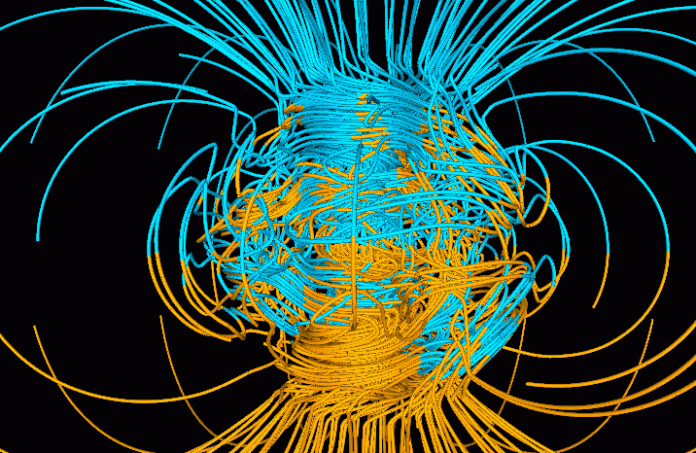Researchers at the Multimedia University of Kenya have claimed the Earth’s magnetic field affects solar panel performance in the same manner fields from power lines, transformers and other electrical equipment can.
The Kenyan group analyzed the performance of a multicrystalline solar panel influenced by a static magnetic field they calculated was the equivalent of the ‘geomagnetic field’ which protects Earth from the solar wind of cosmic particles from the sun.
The scientists observed their static magnetic field prompted considerable variation in the panel’s voltage and current parameters, fill factor, maximum power and conversion efficiency. The changes were produced by the ‘Hall effect’, which determines voltage differences across an electrical conductor. Hall voltage, said the scientists, affects carrier mobility through magnetoresistance, which in turn leads to an increase in cell resistance in the presence of a magnetic field.
Effect
When the static field was increased in the experiment, the solar module’s short circuit current and current at maximum power point fell considerably while open-circuit voltage and voltage at the maximum power point declined slightly. Those parameters combined for an increase in the panel’s fill factor and decrease in the maximum power, as well as a 0.21% fall in conversion efficiency.
The values recorded, the researchers said, are applicable for locations between the Equator and a latitude of 50 degrees.
“The findings revealed an increased [module]-active-area-per-kilowatt [value] of 0.08 m²/kW of electric power generated, translating to [an] installation cost increment of 1.31%, due to decreased efficiency,” said the Kenya group.
The strength of the Earth’s magnetic field ranges between 25,000 and 65,000 nano-Tesla (nT) with values of 31-58,000 nT between the equator and 50 degrees latitude.
The complexity of the geomagnetic field makes it difficult to observe and predict. According to recent studies, the field has lost around 9% of its strength in the last 200 years and has shown more weakness in the ‘South Atlantic Anomaly’ region stretching from Africa to South America.
The findings of the Kenyan study were presented in the paper Investigation into the effects of the earth’s magnetic field on the conversion efficiency of solar cells, published in Renewable Energy and on the ScienceDirect website.






